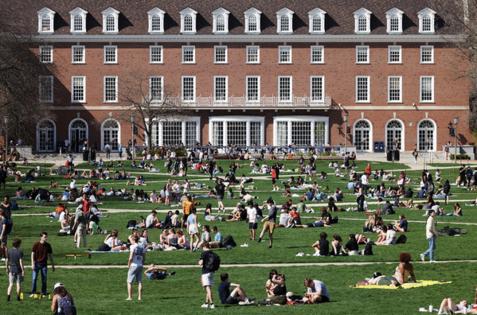Commentary: The real cost of the anti-college narrative for Black and brown students
Published in Op Eds
Across the country, a growing anti-college sentiment has been gaining momentum, positioning itself as an inclusive alternative to traditional views of success. The movement has led more high schools to promote alternative career paths and even revise their missions to exclude any mention of college.
This anti-college push comes from reasonable concerns: Many are rightly frustrated by rising tuition costs and burdensome student loan debt, and they see a job market in which some skilled trades can be just as lucrative as jobs requiring a four-year degree. College is not a prerequisite for success, and it is certainly possible to earn a stable income without a degree.
As a result, many career counselors and students are questioning whether college is really necessary for a fulfilling life.
However, the current anti-college narrative, while seemingly populist and anti-elitist, is built on a false premise: that just because you can be successful without college, you shouldn’t have to pursue it. Worse, it perpetuates a harmful message for historically marginalized groups.
This line of thinking implies that students from lower-income backgrounds or marginalized communities — those often unable to afford college outright — should simply opt out, limiting their potential opportunities. This ultimately reinforces racist and classist ideas that say if you aren’t already poised to access other forms of opportunity, then those opportunities aren’t for you.
This narrative also glazes over a critical point. For many young Americans, specifically for Black and brown students, college remains one of the most effective and clear routes of social mobility and leadership roles. An anti-college narrative threatens to cut off a vital path for them.
It’s important to acknowledge that college isn’t just about income, though the wage gap between those who graduated college and those who didn’t can be profound. And for Black and brown individuals, these earnings have even more of a pronounced effect. In my 25 years of experience in education, I’ve seen firsthand how the benefits of a college education go beyond breaking cycles of poverty. College opens doors to better health care, better health outcomes, even longer life expectancies.
These opportunities are especially impactful for people of color, who often face systemic barriers to accessing essential resources such as quality health care. College-educated people are also more likely to take on leadership roles in their communities, creating a ripple effect of positive change that extends far beyond individual achievement.
Unfortunately, the anti-college narrative threatens to undo this progress. Instead of leveling the playing field, anti-college rhetoric risks reinforcing the very inequities we should be fighting against. What might seem like an anti-elitist stance actually reinforces elitism.
At Noble Schools, a charter school network serving predominantly Black and brown students, our programs have helped thousands of first-generation college students obtain degrees, and Noble alumni earn college degrees at nearly three times the national rate for students from underresourced communities. Black and brown students at Noble have more than double the chance of obtaining a degree compared with national averages.
We recognize that families are rightly concerned about the costs of higher education, and a large part of our work is focused on ensuring students and their families are fully informed about the financial realities. We connect them to resources such as scholarships and grants, which can substantially minimize their financial burden. Our goal is simple: to give students the opportunity to pursue higher education.
As conversations about education and social mobility continue to unfold, we urge leaders and policymakers to look beyond the simplistic and dangerous narrative that college isn’t worth it. No one is arguing that college is a must for everyone, but we must maintain a narrative that promotes, rather than eliminates, options.
____
(Aidé Acosta, Ph.D., is the chief college officer of Noble Schools.)
____
©2024 Chicago Tribune. Visit at chicagotribune.com. Distributed by Tribune Content Agency, LLC.




























































Comments